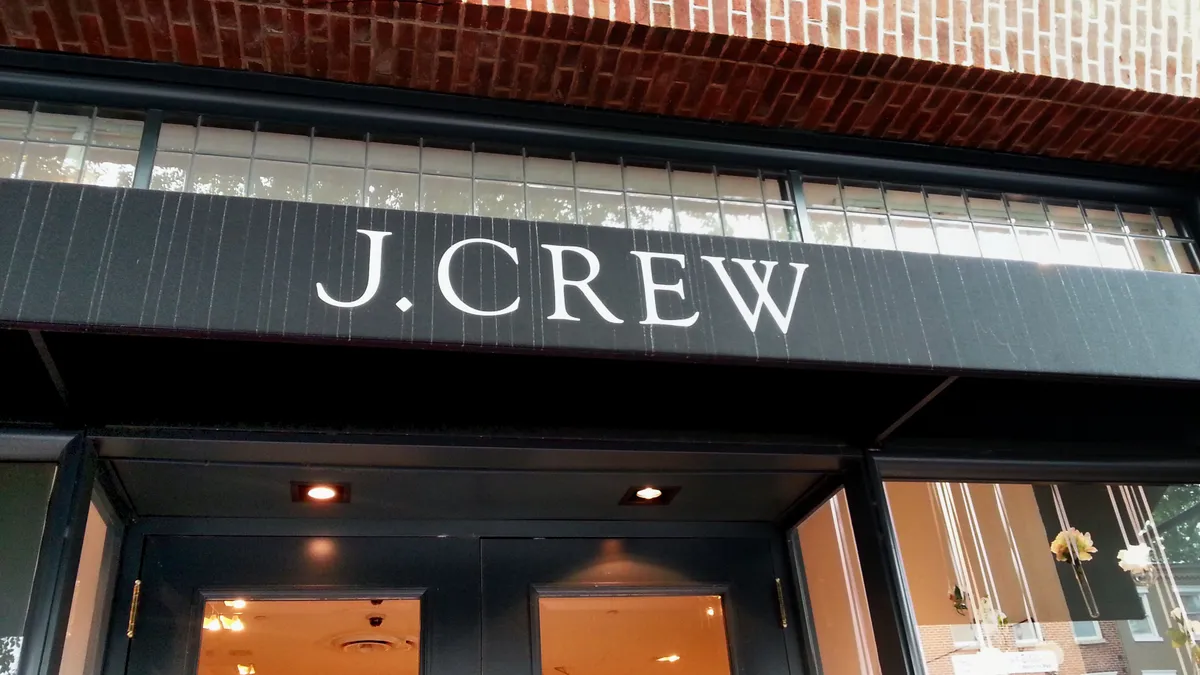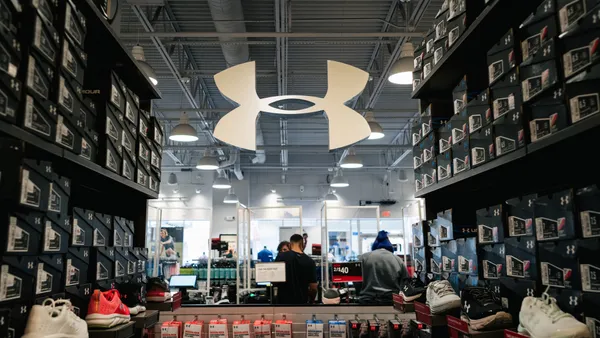Dive Brief:
- After years of pressure, apparel and footwear retailers are being hit with a "sector-wide shock that will reverberate into 2021," Moody's analysts said in a recent report.
- EBIDTA for apparel retailers could fall by 50% to more than 100% for the year, as store closures, discounting and weak demand take their toll, the analysts said in the emailed report. In 2021, earnings could still be 15%-35% below 2019 levels.
- The ratings agency has already downgraded seven of the 10 apparel retailers it covers. Analysts, citing the bankruptcy of J. Crew, said that the current crisis "will push stressed retailers into default and challenge the rest."
Dive Insight:
Full-price apparel sellers started the year with a long list of troubles. Among them: Declining foot traffic to malls; expanding competition from off-price, Amazon and other online specialists; over-supply of clothing; over-expanded store footprints; declining consumer spending on clothes; the rise of rental and re-sale; casualization. The list goes on.
Last year, more than 10 major retailers of apparel and/or footwear went bankrupt, and many more teetered on the edge of default. And now, that already-precarious market has taken a massive blow from the COVID-19 crisis, as retailers have shut their doors, forgoing store sales for months. As the pandemic continues circulating, and the country likely goes into recession, retailers now face uncertain demand and an even tougher operating environment.
As the Moody's analysts note, the current crisis has accelerated long-term trends already reshaping and contracting the industry, namely e-commerce, store closures and casualization. The expansion of the casualization is particularly affected by the pandemic, as more employees work from home, potentially for the long term.
Even by 2021, Moody's estimates that revenue levels for apparel retailers will remain 5% to 10% below their 2019 levels, while profits will remain even more deflated because of discounting and deferred investments.
All of that leaves many apparel retailers vulnerable to bankruptcy, default or at least downgrades and financial struggles that could make it that much harder to modernize their business and adapt to a shifting market. The liquidity vacuum created by the store closures and demand drops could lead to more bankruptcies, versus out-of-court restructuring deals with lenders, according to the Moody's analysts.
They pointed to Ascena Retail Group and J. Jill, both recently downgraded by Moody's, as being at high risk of default. Moody's is also watching Men's Wearhouse, Talbots and Lands' End closely for potential downgrades as they face "upcoming maturities at a time when capital market access is constrained, despite expectations that its e-commerce operations and focus on basics will mitigate much of the stress on the sector," the analysts said.














